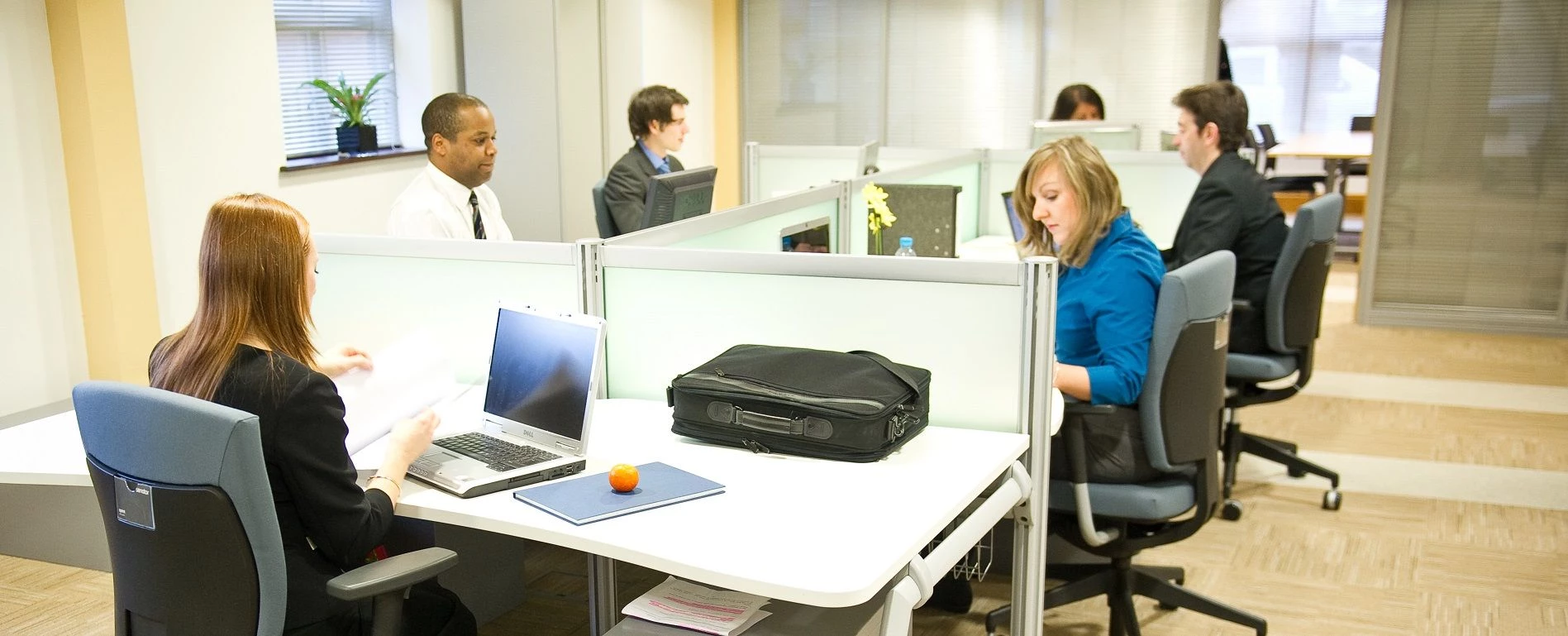
Co-working: Are you ready to jump ship from traditional office space?
With the decline of 9 – 5, full-time corporate jobs and the rise in homeworking and entrepreneurial activity, the demand for alternative working spaces has grown at prolific speeds. Co-working centres are the latest evolution in working spaces that challenge conventional office practices yet offer more in terms of facilities and companionship than home offices.
The benefits of co-working have been widely cited, but who exactly is utilising the modern phenomenon of co-working?
Leeds-based shared office centre Carrwood Park explains…
Entrepreneurs and start-ups
2014 has been described as being the year of the “rise of the entrepreneur.” As The Huffington Post writes, entrepreneurs are playing a vital role in driving Britain’s economy and the UK has “found itself a new identity as the land of the startup.”
In 2013 figure released by Startup Britain revealed a record 500,000 new businesses were started in the UK.
So where are all these innovative and ambitious entrepreneurs working?
As the extraordinary demand for co-working centres testifies, many entrepreneurs are making a co-working office their chosen location to work.
Why? Because co-working centres can be useful for the entrepreneur for a number of reasons. Not only does sharing a vibrant office with others break the isolation of working at home but it can also maximise inspiration and productivity.
Working alongside like-minded fellow entrepreneurs can also directly advantage a business. For example, if an entrepreneur in the digital spectre was looking to take on an app developer, they could find the perfect candidate sitting next to them in a co-working centre.
By the same token, these professional office spaces enable entrepreneurs to network with other industry members, thus providing them with opportunities to exchange ideas and ultimately spawn company growth.
Freelancers
One of the most pertinent features of the modern workforce is centred on the rise of the freelance economy. AsForbesstates, today freelancers make up approximately 15% of the economy, a figure which is expected to rise to 20% by 2020.
Like entrepreneurs, freelancers are flocking to co-working centres throughout the world to utilise their unique advantages.
Similar the appeal of the coffee shop, many freelancers are drawn to co-working offices by the lure of free Wi-Fi, hot drinks and background buzz. Though unlike the coffee shop, co-working centres are solely geared towards conducting business.
Working in a business environment means freelancers are less likely to become distracted. The sense of community co-working centres provide is a refreshing alternative to the isolation of homeworking. But perhaps the biggest asset of the co-working office for the freelancer is that they provide the opportunity to network and ultimately pick up more work.
Established businesses
Whilst co-working centres are predominantly used by start-ups, freelancers and entrepreneurs they also have advantages for established companies.
Unlike expensive and lengthy office lease contracts, co-working centres can be a much more flexible and cost-effective answer to office space for companies battling with budgets.
Also, as employees are increasingly yearning flexible working conditions that offer a better work/life balance, giving workers greater freedom to work when and where they want can increase employee morale and ultimately contribute to a more contented, settled and productive workforce.
Providing such a wealth of opportunity for a diverse range of workers and businesses, it’s safe to say the popularity of co-working is only going to intensify.
This article was written by Carrwood Park, a state-of-the-art co-working centre based in Leeds. Our co-working FAQsmight answer any other questions you might have about co-working.
This was posted in Bdaily's Members' News section by Carrwood Park .
Enjoy the read? Get Bdaily delivered.
Sign up to receive our popular Yorkshire & The Humber morning email for free.








 Raising the bar to boost North East growth
Raising the bar to boost North East growth
 Navigating the messy middle of business growth
Navigating the messy middle of business growth
 We must make it easier to hire young people
We must make it easier to hire young people
 Why community-based care is key to NHS' future
Why community-based care is key to NHS' future
 Culture, confidence and creativity in the North East
Culture, confidence and creativity in the North East
 Putting in the groundwork to boost skills
Putting in the groundwork to boost skills
 £100,000 milestone drives forward STEM work
£100,000 milestone drives forward STEM work
 Restoring confidence for the economic road ahead
Restoring confidence for the economic road ahead
 Ready to scale? Buy-and-build offers opportunity
Ready to scale? Buy-and-build offers opportunity
 When will our regional economy grow?
When will our regional economy grow?
 Creating a thriving North East construction sector
Creating a thriving North East construction sector
 Why investors are still backing the North East
Why investors are still backing the North East